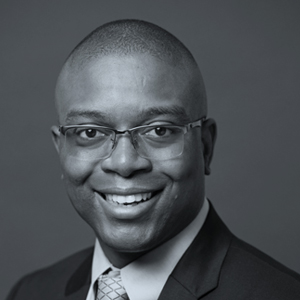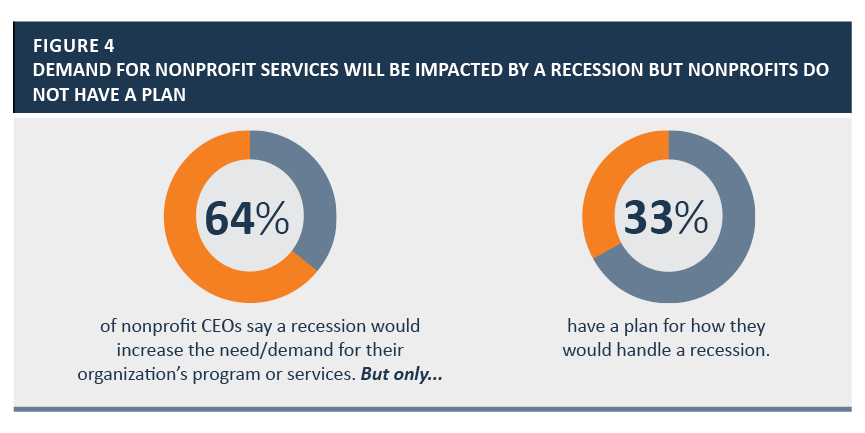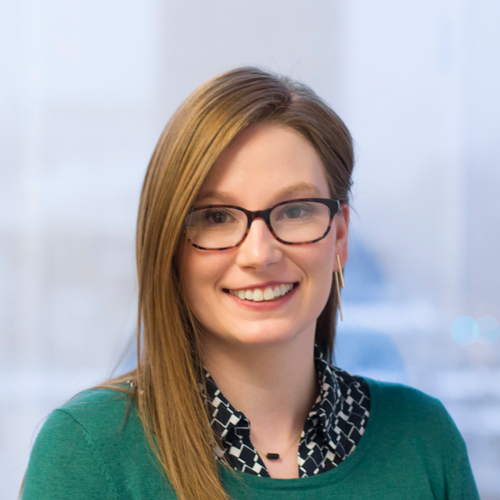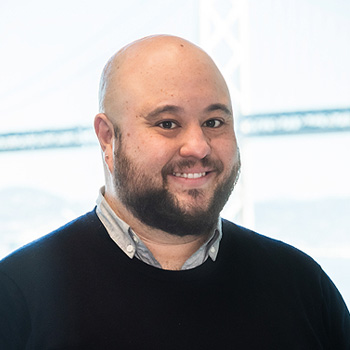New CEP Resource Spotlights Nonprofit Perspectives on Current Hot-Button Issues in Philanthropy
 The nonprofit perspective matters in any discussion about the philanthropic sector. But the views of nonprofit leaders are too often left out. CEP’s newest research seeks to remedy that when it comes to several hotly debated issues of the moment in philanthropy.
The nonprofit perspective matters in any discussion about the philanthropic sector. But the views of nonprofit leaders are too often left out. CEP’s newest research seeks to remedy that when it comes to several hotly debated issues of the moment in philanthropy.
In The Funding Landscape: Nonprofit Perspectives on Current Issues in Philanthropy, released just this week, CEP’s Ellie Buteau, Hannah Martin, and Kate Gehling highlight the nonprofit perspective on the impact of recent tax code changes, anticipated changes in nonprofit revenue, concerns about a recession, current debates about donor-advised funds (DAFs), and the prevalence and use of gift acceptance policies.
Our survey revealed a number of important findings. For example, we learned that nearly two-thirds (64 percent) of nonprofit CEOs say a recession would increase the need or demand for their organization’s programs or services, but only one-third (33 percent) have a plan for how they would handle a recession. We also learned that nonprofit CEOs identify both advantages and disadvantages of DAFS, with the top advantage cited being that DAFs involve less of an administrative burden for nonprofits, and the top disadvantage cited being that DAFs hamper nonprofits’ ability to build personal relationships with donors.
These are just a few of the data points shared in The Funding Landscape. Findings in the report are based on responses from 419 CEOs from nonprofit, grant-seeking organizations that receive at least one grant from foundations giving $5 million or more annually. (The survey was sent in November 2019 to 1,125 CEOs on CEP’s Grantee Voice panel, for a 34 percent response rate.)
CEP provided this data to The Chronicle of Philanthropy in December and The Chronicle has mentioned several data points in articles over recent weeks. Martin also shared more detailed data from the study about nonprofit perspectives on DAFs in a recent post on the CEP blog. This report is a complete summary of what we found in our survey.
We invite you to download and read the publication in full, and we welcome your thoughts and reactions.
Download the report here.
How Funders Can Get Better at Getting Better
When CEP looked at grantee feedback gathered over the past 15 years through the Grantee Perception Report (GPR), we learned that one group of funders is making consistent improvements over time: those who survey their grantees repeatedly.
This story is told in a recent article in Washington Monthly by Lowell Weiss, president of Cascade Philanthropy Advisors. In the article, Weiss looks at the work of three foundations that have used the GPR multiple times and seen their ratings trend upward: Blandin Foundation, Conrad N. Hilton Foundation, and Maine Health Access Foundation.
While CEP’s analysis could not prove a causal link between surveying grantees repeatedly and making improvements, the data shows a strong and clear association between more positive grantee experiences and funders that receive regular feedback from their grantees.
As Weiss writes, “There’s no question that the foundations that invest in listening to those who are closest to the problems they seek to solve — their grantees, their constituents, and other key stakeholders — are the ones most likely to learn, adapt, and improve over time.”
Read the entire article here.
Bay Area, Don’t Miss Phil Buchanan’s Lecture on March 18
 CEP President Phil Buchanan will be speaking in San Francisco on Wednesday, March 18 at 7:30 PM as part of the DiaTribe Foundation’s free CPS Lectures Series. In his talk, Buchanan will discuss some of the key arguments of his book, Giving Done Right, and why they matter in particular in this moment of political volatility, declining trust in institutions, and backlash against so-called “elite philanthropy.”
CEP President Phil Buchanan will be speaking in San Francisco on Wednesday, March 18 at 7:30 PM as part of the DiaTribe Foundation’s free CPS Lectures Series. In his talk, Buchanan will discuss some of the key arguments of his book, Giving Done Right, and why they matter in particular in this moment of political volatility, declining trust in institutions, and backlash against so-called “elite philanthropy.”
If you’re based in the Bay Area, we hope you’ll join us next month for this free event!
Learn more and register here (RSVP required).
Anthony Richardson Elected to CEP Board of Directors
 CEP is thrilled to welcome Nord Family Foundation Executive Director Anthony (Tony) Richardson aboard as the newest member of its Board of Directors.
CEP is thrilled to welcome Nord Family Foundation Executive Director Anthony (Tony) Richardson aboard as the newest member of its Board of Directors.
Richardson is an Ohio native with a decade of public service experience. In 2011, he was elected as a councilman at-large in the City of Lorain, Ohio, becoming the youngest person of color elected to an at-large seat. During his second term, he served as chairman of the Police, Fire, and Legislative Standing Committee and sponsored legislation to increase hiring goal percentages for racial minorities and women on city projects. Richardson joined the Nord Family Foundation, located in Amherst, Ohio, in January 2015 as a program officer, and was named executive director of the Foundation in November 2018.
“Tony Richardson is a foundation leader who exemplifies principles of effective philanthropy that CEP promotes,” said CEP President Phil Buchanan in a press release. “He seeks to listen and learn from both grantees and those they serve, and to chart a path for the Nord Family Foundation that is informed by these insights. He has been a champion of our YouthTruth initiative and a committed member of CEP’s Advisory Board. I am thrilled he is now joining our Board of Directors.”
Having joined on January 1, Richardson will serve a three-year term. He joins a Board that includes: Chair Grant Oliphant (President, the Heinz Endowments), Paul Beaudet (Executive Director, Wilburforce Foundation), Phil Buchanan (ex officio, President, CEP), Kathleen Cravero (former President, Oak Foundation), Tiffany Cooper Gueye (Managing Director, Portfolio Strategy & Management, Blue Meridian Partners, Inc.), Richard Ober (President and CEO, New Hampshire Charitable Foundation), Hilary Pennington (Executive Vice President for Program, Ford Foundation), Christy Pichel (former President, Stuart Foundation), Vince Stehle (Executive Director, Media Impact Funders), Kelvin Taketa (Senior Fellow, Hawai’i Community Foundation), Fay Twersky (Vice President, the William and Flora Hewlett Foundation), and Lynn Perry Wooten (currently the J. Nolan Dean and Professor of Management and Organizations, Cornell University’s Dyson School of Applied Economics and Management, and becoming president of Simmons University in Boston July 1).
Save the date for the 2021 CEP Conference!
It’s never too early to make sure you’ll be able to take part in CEP’s next biennial national conference! We hope you’ll save the date for the 2021 CEP Conference in your calendar: May 11-13, 2021 at the Marriott Marquis Houston. Stay tuned for initial details and registration information later this year.
Reserve your spot now to participate in a CEP assessment this year!
If you’re thinking about learning from candid, actionable feedback from your grantees, staff, donors, or other stakeholders this year, act quickly to reserve your spot for a CEP assessment in 2020. If your foundation is interested in collecting and learning from feedback this year, now is the time to contact Austin Long to get the conversation started.
Book a CEP leader to speak to your audience!
CEP’s experts have deep experience working closely with philanthropic funders and are passionate about sharing their views on the unique and important work of the sector. Learn more about CEP’s leaders here and reach out to Vice President, Programming and External Relations, Grace Nicolette if you have questions about booking a CEP speaker.
On the Blog
Ruth Levine, policy fellow at the Center for Advanced Study in the Behavioral Sciences at Stanford University, presents five key questions for international grantmakers to help them develop stronger relationships between themselves, the international NGOs they support, and the local organizations with which those INGOs often partner.
Manager, Assessment and Advisory Services, Charlotte Brugman, who is based in Amsterdam and leads CEP’s work in Europe, writes that listening and learning on its own is not enough, and that foundations cannot afford to navel gaze and tinker with finding the perfect strategy given the pressing nature of the problems they seek to solve.
Barbara Leonard, president and CEO of the Maine Health Access Foundation (MeHAF), tells the story of how MeHAF has used the Grantee Perception Report (GPR) regularly to gain insight into the crucial but difficult-to-answer question: how are we doing?
“Which Side Are You On?”, an essay by Heinz Endowments President and CEP Board Chair Grant Oliphant, argues that reforming the criminal justice system will first and most fundamentally require a change of mind and a change of heart.
Ekouté’s Valerie Threlfall shares highlights of a new landscape scan of foundation listening practices.
In his “Looking Back, Looking Forward” series, CEP President Phil Buchanan reflects on philanthropy’s first two decades in the 21st Century and shares his hopes for the new one now underway.
- In Part 1, Buchanan analyzes the “Business-Knows-Best Decade,” in which a conception of strategy taken from a business environment was preached with prevalence throughout the philanthropic sector, to its detriment.
- In Part 2, he looks at the second decade of the 21st century, the “Rising Tide of Critique Decade,” in which new criticisms of the role of philanthropy in a democratic society came to the fore.
- In Part 3, he turns his attention from the role of philanthropy to its practice, pointing to specific examples of philanthropic successes and failures that can be learned from.
- And in Part 4, Buchanan turns his eye to the new decade ahead of us, sharing his hopes for what philanthropy can accomplish to contribute to real, discernible progress on the tough challenges we face.
Andrea Fionda, director of programs at the Jacob & Valeria Langeloth Foundation, discusses how the Foundation has made intentional shifts in its grantmaking to be consistent with its principle of “following the field.”
Miles Wilson, deputy director of education grantmaking at Ascendium Education Group, has shared the first two posts in new five-part series on where philanthropy is stuck in old paradigms — and where there lie opportunities to advance social justice both within the sector and across American society. The first post shares Wilson’s story and experience working in the field, while the second keys in on the vital role that general operating support can play in advancing social justice.
Iqbal Singh Dhaliwal and Samantha Friedlander of the Abdul Latif Jameel Poverty Action Lab (J-PAL) share three lessons for philanthropists seeking to support and grow the practice of evidence-driven decision-making.
Along with Anne Maftei of the Mastercard Foundation Rural & Agricultural Learning Lab, Dalberg Design’s Kristen Schlott and Ravi Chhatpar identify and bust three common myths that lead organizations to adopt a superficial approach to learning.
Vimmi Malhotra and Hisham Mundol of Children’s Investment Fund Foundation (CIFF) discuss the importance of strengthening organizations, describing lessons they’ve learned from CIFF’s organizational development work.
CEP is Hiring!
CEP currently has four open positions!
- Director, Donor Resources (San Francisco)
- Manager, Assessment and Advisory Services (San Francisco)
- Analyst, Assessment and Advisory Services (Cambridge)
- Coordinator, Programming and External Relations (Cambridge)
Support CEP
If you believe in CEP’s work, and if it benefits you and your organization as you seek to do yours, please consider making a grant or an individual contribution to CEP. Supporting CEP means supporting more effective philanthropy.
New Faces at CEP
CEP recently welcomed two new staff members to our team: Molly Heidemann joined CEP’s Cambridge office as executive assistant to the president, while Alan Ratliff joined the YouthTruth team in San Francisco as partnerships lead.


